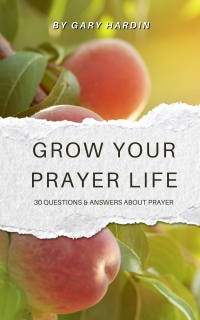Do You Struggle with Brain Rot?
Do You Struggle with Brain Rot?
“Brain rot,” the Oxford English Dictionary’s Word of the Year for 2024 has gained new prominence. The word describes the mind-numbing effect on our brains of too much screen time. You know, scrolling mindlessly through social media feeds, Pinterest, or spending too much time watching trivial online videos.
Brain rot is a problem we bring on ourselves resulting in mental fogginess, lethargy, reduced attention span, and cognitive decline all resulting from an overabundance of screen time.
How do you know if you have become a victim to brain rot? Do you spend unreasonable amounts of time scrolling through social media feeds? Do you find it more difficult to focus during in-person conversations? Do you struggle to read longer articles or books? Do you notice your thoughts are becoming more scattered and superficial? Do you often feel like your brain is fuddled, not functioning at full capacity? If you answered yes to any of these questions, then brain fog could be the culprit.
Who is most at risk for brain fog? Children and teens are most at risk because excessive screen time at an early age, while the brain is still developing, can lead to a lifetime of poorer cognitive and behavioral health.
For young adults, their self-concept can be greatly affected by brain rot. How many “friends,” “followers,” or “likes” you have is visible for all to see, making it easy to fall prey to the comparison trap.
Generation Z (those born 1997-2012) spends an average of 6.6 hours daily on screens, which is more than any other generation. This fact is alarming, isn’t it?
In addition, the bombardment of posts flaunting people’s successes, exotic vacations, blissful relationships, new homes, new cars, and picture-perfect bodies (often digitally manipulated with filters) can lead to negative self-talk. The brain becomes so cluttered by this constant overstimulation that it struggles to sort truth from fiction.
The reality of brain fog sends a warning message to parents of young children. Set screen time limits, encourage outdoor play, engage your kids in mentally stimulating activities. Puzzles, board games, and books are better alternatives to long periods of screen time.
How can we prevent brain rot? I suggest that we make several of the following choices.
First, track how much time you spend browsing, scrolling social media, watching videos, and gaming. You might be shocked to discover just how much time you invest in these digital activities each day.
Second, protect yourself by being mindful of what you consume from social media feeds. Don’t give in to sensationalistic and negative news. Diversify your media sources so you maintain a more balanced real-world perspective.
Third, pursue more non-digital interests, like reading, exercise, camping, outdoor activities, listening to music, praying more, or writing in a journal.
Four, engage in more one-on-one conversations with positive people. Meet someone for coffee and conversation. Go out to eat with friends. Get involved in a church small group. Join a book club.
Five, consider a digital detox. Unplug from digital media for a day or more. If scrolling through social media feeds is a time consumer for you, decide that you will only scroll through digital media feeds on certain days of the week. Decide that some apps you spend time on are damaging to your mental health, and delete them.
Bible days knew nothing of digital devices. But this Bible verse might be a good one for admonishing us about hours spent on our screens. "And be not conformed to this world: but be transformed by the renewing of your mind” (Romans 12:2).

